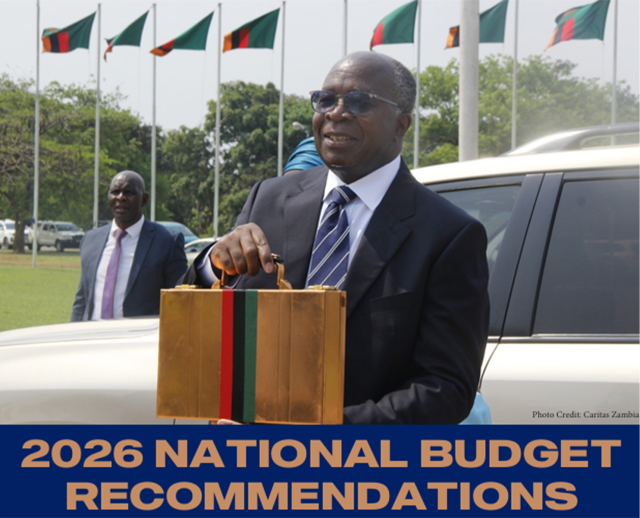2026 National Budget Recommendations
- Posted on October 21, 2025
- News
- By Excel Magazine Team
- 325 Views
Excel Magazine commends the 2026 National Budget presented by Finance Minister Dr. Situmbeko Musokotwane, themed “Consolidating Economic and Social Gains Towards a Prosperous, Resilient and Equitable Zambia.” The publication highlights key priorities for effective implementation — including reducing borrowing costs, stabilizing fuel prices, ensuring reliable power supply, improving transport infrastructure, promoting value addition in agriculture, and enforcing local content policies — as essential steps to lower the cost of doing business and drive sustainable economic growth.

By Diana Kabaila
Excel Magazine applauds the Honourable Minister of Finance and National Planning, Dr. Situmbeko Musokotwane, for the Progressive 2026 National Budget that was successfully presented to Parliament on 26th September 2025, under the theme “Consolidating Economic and Social Gains Towards a Prosperous, Resilient and Equitable Zambia.”
Our interpretation of this theme is that Government will leverage the gains of the Eighth National Development Plan (8NDP), which concludes this year-end, and focus on building on them. A win for the private sector would be faster implementation of policies that will lower the cost of doing business to encourage investments, industrial growth, and job creation.
A Call to Reduce the Cost of Borrowing
Reducing the cost of borrowing in Zambia must be prioritized, as commercial lending rates remain extremely high, averaging 28–29% per annum, among the highest in the region. This discourages investments, limits expansion, and prevents SMEs from reaching their full potential.
Access to affordable credit is critical for businesses to reinvest, expand production, and create employment opportunities.
Reliable Electricity Supply
Government’s commitment to a diversified energy mix—especially the expansion of solar energy projects—is commendable, but the issue of access and affordability remains critical for households and MSMEs.
The call is for Government to invest in a guaranteed supply of at least 12–15 hours of power daily to sustain production.
Stabilise Petroleum Prices
Government should introduce a policy that will stabilize petroleum prices in order to reduce the cost of doing business and improve competitiveness, as petroleum products are a key production and transportation factor.
A consistent and transparent fuel pricing mechanism will cushion businesses from sharp fluctuations, reduce uncertainty, and support long-term growth.
Transport and Logistics
We commend Government’s focus on road rehabilitation and construction; however, we urge for faster completion, with proper truck parks and facilities to ease congestion.
Having increased toll fees, which will raise transportation costs, we urge Government to speed up railway rehabilitation and construction to give bulk haulage carriers alternative transportation as a more cost-effective and sustainable solution. This will also reduce Government’s cost of road maintenance.
Agriculture Value Addition
We support measures to expand agricultural output, such as increased maize and soya production for exports, but we emphasize that Zambia should shift towards value addition as a national competitive strategy.
Exporting raw crops limits revenue potential, while exporting processed goods can generate higher earnings and create jobs.
Exporting finished products such as mealie meal, maize bran, cooking oil, and agro-based goods will boost export earnings, create jobs, and improve food security.
Enforcement of Local Content
We call for stricter enforcement of local content policies across key sectors such as mining, construction, energy, and agriculture. This will empower SMEs, build capacity, create jobs, and ensure more value is retained within the Zambian economy.
Conclusion
In conclusion, we emphasize that the 2026 National Budget offers opportunities for growth, but its success will depend on how effectively policies are implemented—and whether they truly reduce the cost of doing business.




